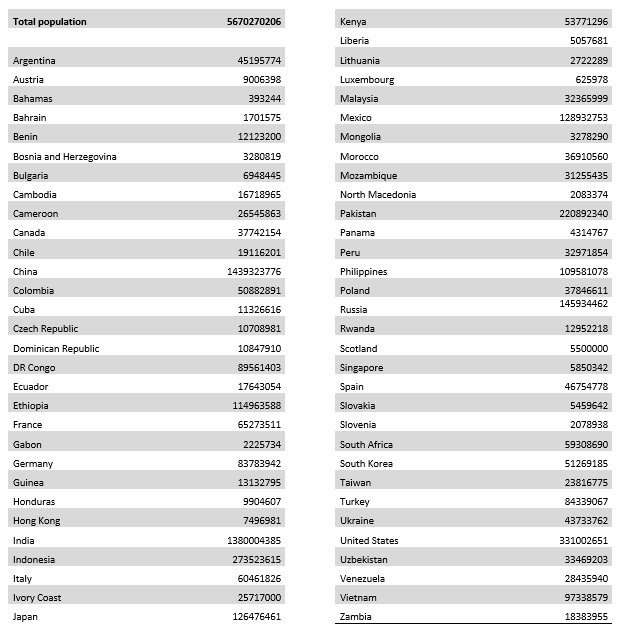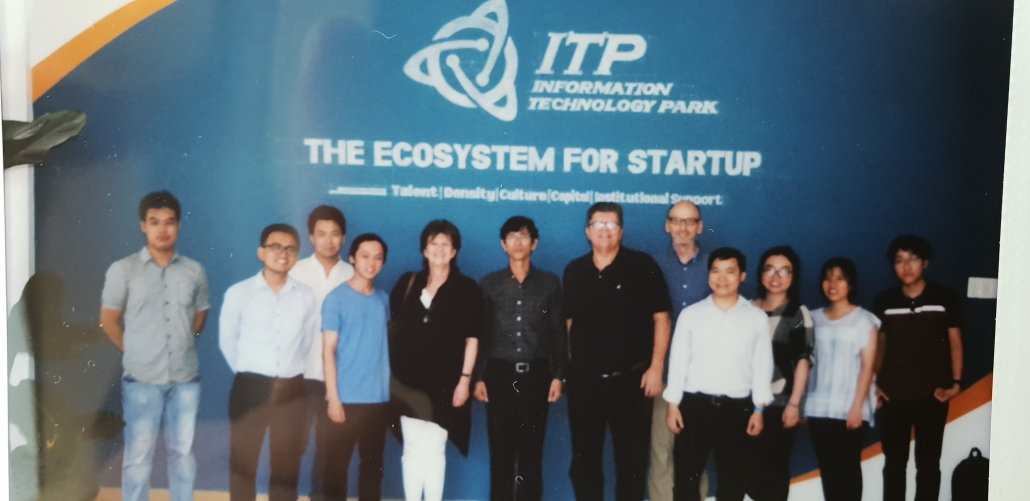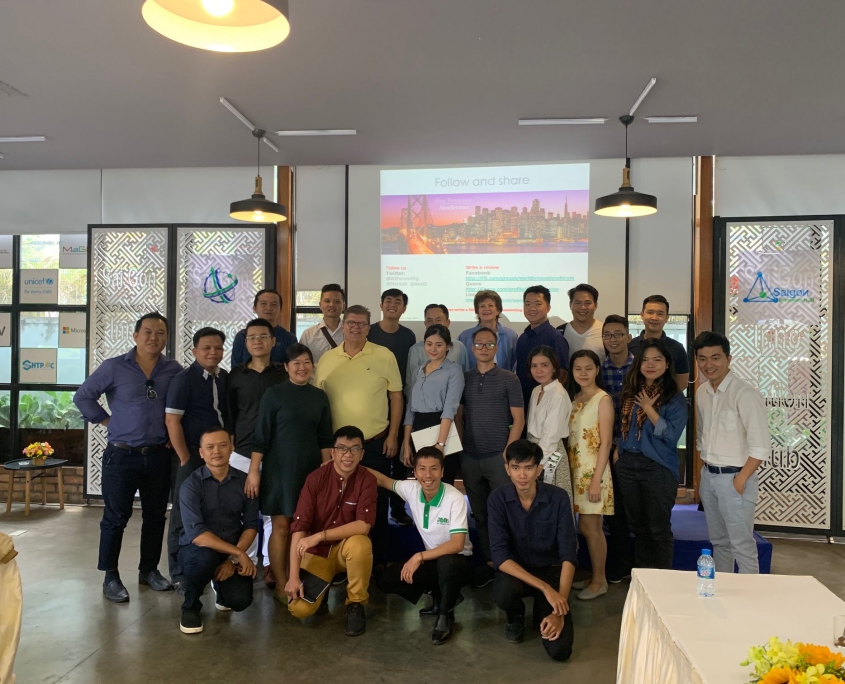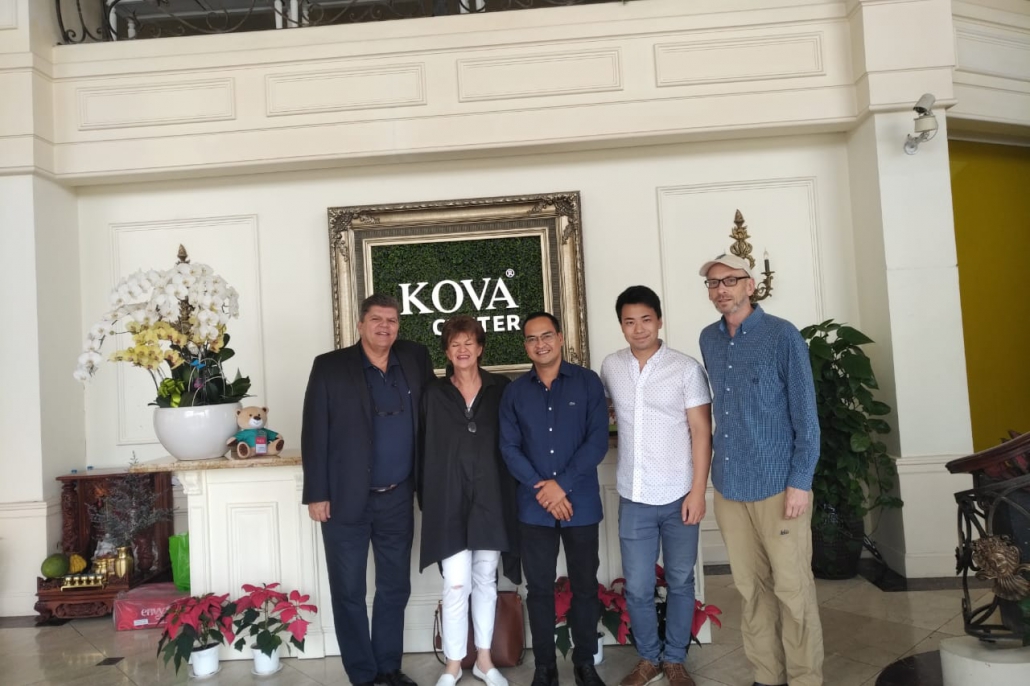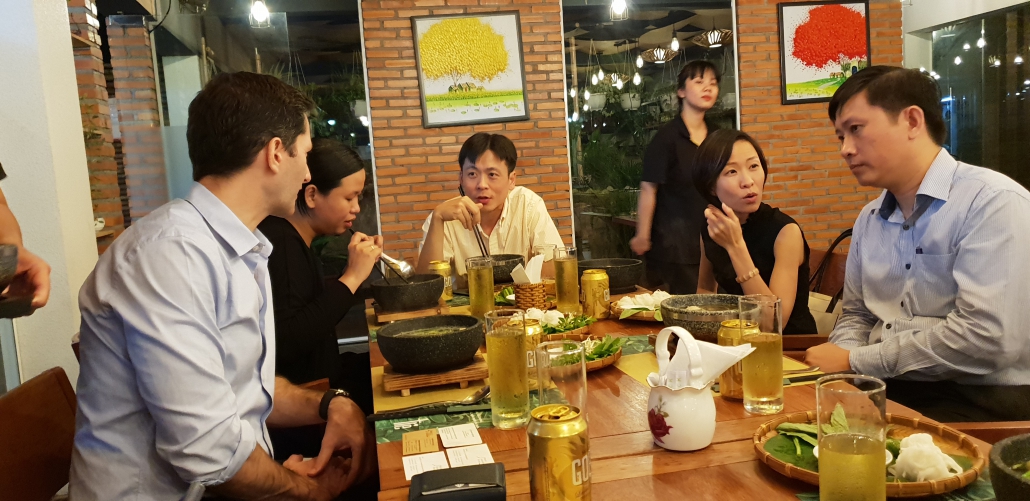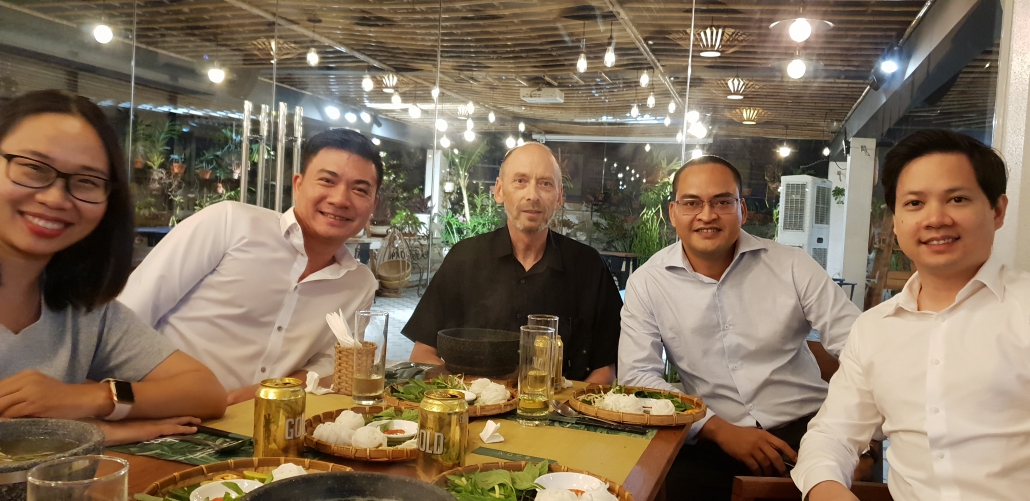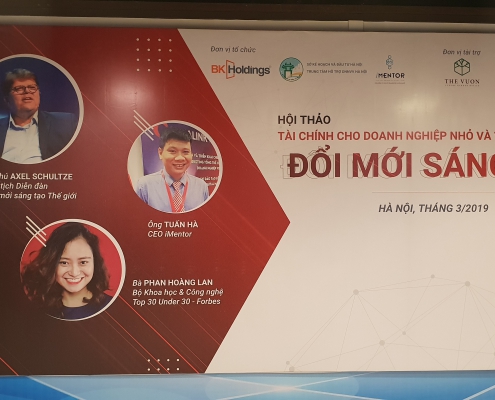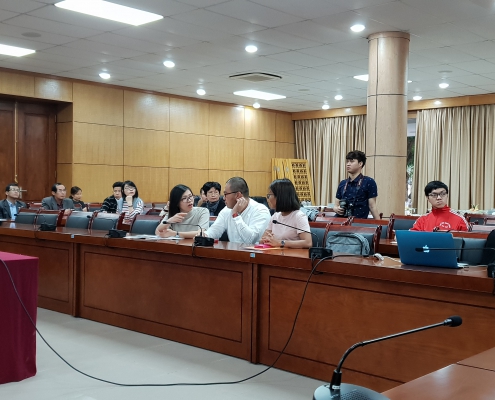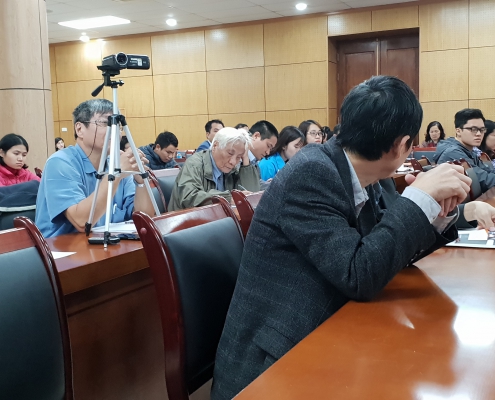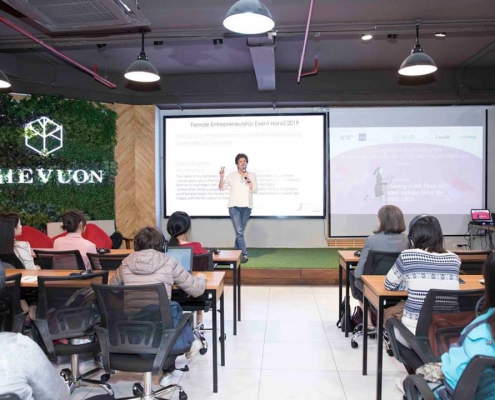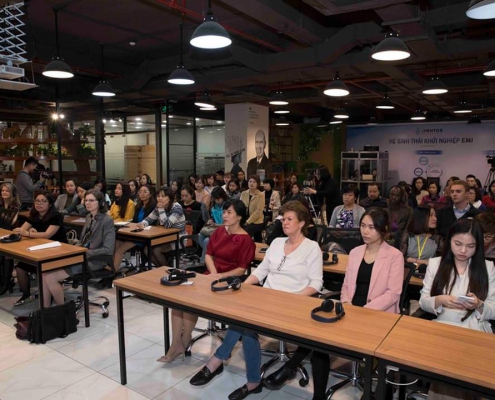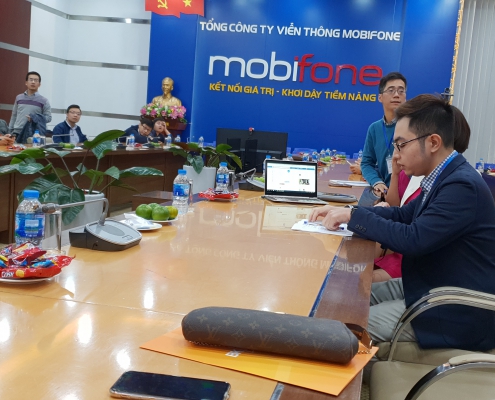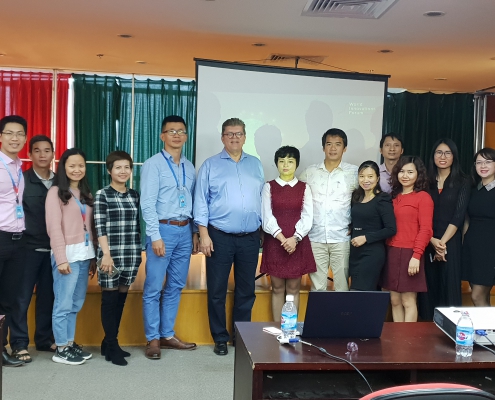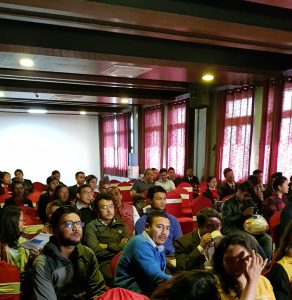Two hundred years ago, Europe was the dominant innovation hotspot in the world. Machines, automobiles, trains, airplanes, architecture innovation… almost everything came from Europe. That changed about 60 years ago.
Innovation shift to the US, then China
John F. Kennedy gave the change signal. “We take a man to the moon and bring him safely back by the end of the decade.” The United States had a vision bigger than life. In the ’80s, the democratization of computing power was yet another significant shift. The Internet in the mid-’90s, Social Media around 2005, and everything digital in the early 2010s. Apple, Intel, Microsoft, Visa, MasterCard, Cisco, Oracle, Google, Netflix, Salesforce, Paypal, LinkedIn, Facebook, Uber, Tesla, YouTube, AirBnB, Space-X, Stripe, Y-Combinator, 23andMe, GenTech… The digital world – the technology for our future – is now driven by US firms. SAP, founded in April 1972, was the last European innovator that made it to a global leader.
In the early 2000s, another innovation driver was rising: Asia. Mainly China, Singapore, and South Korea became not just fast producers, efficient builders and inexpensive labor but full of innovative minds. While dealers and retailers in Europe had been arguing about Amazon’s disruptive power, there was nobody who tried to compete. Zalando in Germany stood up, but instead of triumph and support, they have been beaten down for all kinds of nitty-gritty details. Eventually, Alibaba of China attacked Amazon at their own game. Today super successful with a new and disruptive business model. Another notable Chinese company, Tencent, grew out of nothing as a rising star. A tech company that sees opportunities and fulfills them. TikTok, for instance, a Tencent company, is growing faster in the video space than any other company ever did. Megvii, a powerful AI company, Baidu, Ecovacs Robotics, Huawei, BOE, ByteDance, Byton (EVs), Geeli (EVs), Pony.AI, UCloud, Xiaomi, and so forth. Most of them have not been noticed in Europe. The market size, with a population of 3.8 Billion in Asian plus 1.4 Billion in Africa is so much more attractive and more open to innovation than the European market with a population of just 500 Million.
What’s the problem in Europe
Schools are great. People are smart, hard-working, intelligent, creative, innovative thinkers, good business people, good engineers and good scientists. Europeans practice a “problem solver” culture, can collaborate very well, have centuries of innovation history and build some of the finest products. They seem to be the top predator in the global economy. Yet zero notable innovation. Europeans can’t get traction, scale, growth and eventually get bypassed by foreign competition. What’s wrong with the old continent? Top people who would have left for Silicon Valley 10 years ago can now be found in Shenzhen, Singapore, Seoul, and many other cities. Byton, a fast-growing electric car company – a real competition to Tesla by the way – is not only one of many Chinese car manufacturers – its a German startup in China. Former BMW managers started Byton. Within three years, they designed, tested, produce a complete, fully electric car and built the manufacturing plant – all at the same time. Impossible to do that in Germany.
Regulated to death
Regulations, administration, bureaucracy and security thinking is one thing; labor costs another item, space yet another one. But all that is not the real bummer – and no – not even capital as most would immediately point out. It is a terrible cultural development from the past 50 years. Europeans have a protectionist and safety-oriented mindset like no other society on earth. Insurances, social security, data privacy and numerous other topics literally dominate European culture. Whether you look at Sweden, Germany, Switzerland, France, Spain, Hungary, or any other country, companies who innovate and disrupt get banned – preservers are in power. Uber is banned in most Swiss cantons. Amazon can’t do business in Switzerland directly. AirBnB, Paypal, and many others have a hard time to get “approved”. And it’s not just US or Chinese companies. Even European innovators have the most challenging time in their home mainland. IKEA wanted to open a shop in Nice/France – it endures forever. And on and on it goes. The protection of the dying local shops is more important than innovation. Why? Because the local shop lobby is bigger and connection to community authority stronger than the interest in standing up and competing. And in Europe, protecting means avoidance of change. Autonomous cars can’t be tested because it is considered not safe enough. Well, then all European car maker march one more time to Silicon Valley, let their cars test there and – ooops also the entire experience moves there. Most car manufacturers hold a potent board – but no experience in the digital world. As a result: some 100 LEDs are the innovation of the day. Few have experience with modern business models. As a result: Accessory manufacturers dictate pricing structures that create a car’s configuration merely a joke – but nobody is noticing. Those add ons are as old as it can be. But European car manufacturers don’t even know what their customers want; “Vive la GDPR”
Privacy protection and innovation
What has one to do with the other? Again nobody notices. Every innovative idea ever created comes from the brain. Our neurons compose new ideas from past experiences. If you never had any experience with Lexicrypt, you won’t be able to innovate around Lexicrypt. And if you don’t know what your customers really want – you cannot innovate for them. The Vendor-Customer communication is so isolated from each other, it’s stronger than an iron curtain – more potent than the Berlin Wall – more protected than China from Facebook, harder to crack than any business secret from the closest competitor. Whoever suggested this massive data protection mechanism to the European Commission did the perfect job that even the best spy movie author could not come up No cyberwar author could have done a better job than that: Eliminate an entire continent by cutting their communication off and making them do it themselves. And the security play was so easy in the most fearful culture on earth.
Lack of courage
Moreover, in most European countries, top US consulting companies run governments, military, corporations, leading universities – everything. Why? because somebody needs to take the risk of making a mistake. “We spend billions in the best consulting firms; they confirmed that it’s a great job. I’m not guilty”. COURAGE has become an unknown word in Europe’s C-Level, University leaders, and military generals. If a nation is mostly busy protecting what they achieved and avoiding risks, they build a massive framework of rules and regulations. And if protection and regulation become the standard, courage is not a need. And even worse. Those who would have the courage get blocked by those who don’t and move on to nations where they can flourish. Europe’s brain drain is in full swing. And maybe the same is on the rise in the US. A problem that modern political systems have never faced and, therefore, no concept to even deal with it – let alone solve it. Even worse, it is not even seen as a challenge. What can be wrong with order? Order is good. Yes, and the requirement of order is no change, and that means banning innovation. There is no bad guy and nobody really guilty. We are living in a continuously evolving organism that simply could not see it coming. But today, we see that the tech world in Europe has nearly no way to catch up, the automobile world lost its edge and there is only a strategy to copy the new market leaders. Europe must crack this enormous nut. Innovate or get disrupted
Innovating the societal system
The list of nations that did not make it, is long: Egypt, the Roman Empire, British Empire and many in between. No society could ever escape that cycle. But no society has ever had such a deep understanding of human organization power, political systems, innovative behavior then we have today. Comparing it with a natural life and death cycle is not appropriate – no country actually died, the people stood alive, nothing broke – but the economy. And since we can fix smaller economic meltdowns, why not a big one? Maybe there is a chance to make a change; no society has ever been able to make “Disrupting itself”.
We are working with the BlueCallum team on structural innovation models that helps super enterprises, those with more than 25,000 employees, to change towards innovation. Maybe the collective intellect of the World Innovations Forum can help empowering nations. A good start could be working with jeopardized industries, like the Tourist industry hit hard by Covid19. Losing an old industry is not just making way for new industry players, it is also a loss of resources, experience, knowledge and more. I’m not talking about old and worthless knowledge but the ability to build knowledge, experience to find solutions and culture that cannot be transferred in another country but values that could help rebuild an innovative spirit that passed away.

 Our first webinar is a great starting point for anyone considering becoming an entrepreneur, as it walks you through what it really takes to be a successful entrepreneur. The main takeaways answer the question, what are traits of an entrepreneur? These are not skills, nothing inherited, no expertise, no training …
Our first webinar is a great starting point for anyone considering becoming an entrepreneur, as it walks you through what it really takes to be a successful entrepreneur. The main takeaways answer the question, what are traits of an entrepreneur? These are not skills, nothing inherited, no expertise, no training … You want to be an entrepreneur. You have the important traits addressed in our first webinar, Entrepreneurs DNA but you don’t have an idea? In our next webinar, Idea Seeker, we showed you where the best ideas in the world come from. You might be surprised; it is easier than you may think.
You want to be an entrepreneur. You have the important traits addressed in our first webinar, Entrepreneurs DNA but you don’t have an idea? In our next webinar, Idea Seeker, we showed you where the best ideas in the world come from. You might be surprised; it is easier than you may think. Now you have your idea but how good is that idea really? Do you know? Our next webinar, Idea Validation, showed you how to get that answer and even how to make a so-so-idea into a really great idea. We cannot stress enough, build what customers want – not what you think they should get! Here is some top client feedback to consider:
Now you have your idea but how good is that idea really? Do you know? Our next webinar, Idea Validation, showed you how to get that answer and even how to make a so-so-idea into a really great idea. We cannot stress enough, build what customers want – not what you think they should get! Here is some top client feedback to consider: